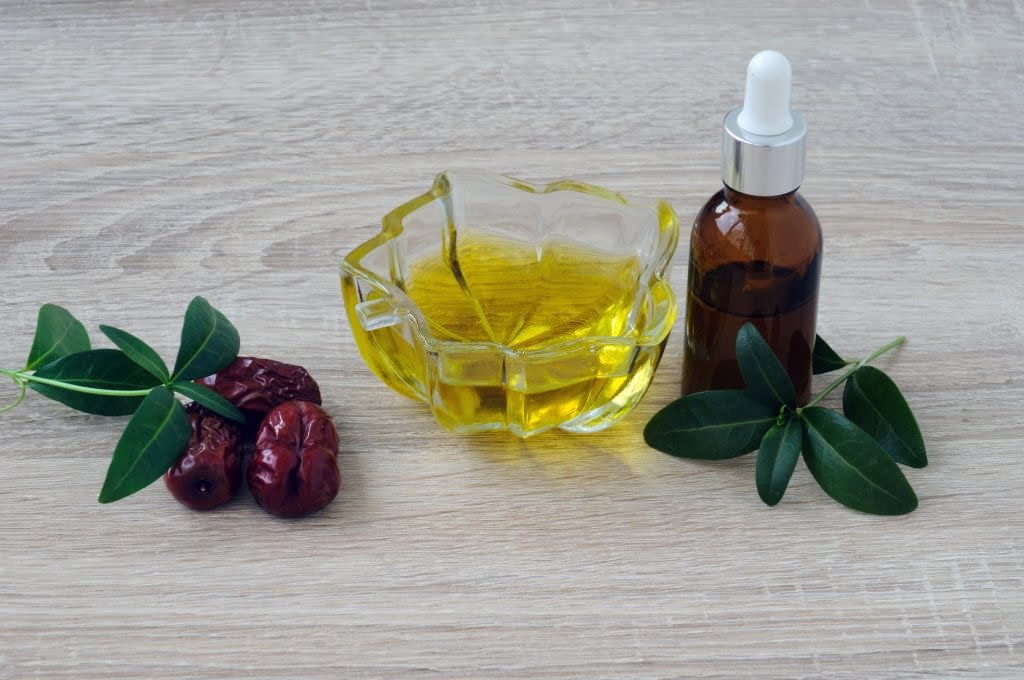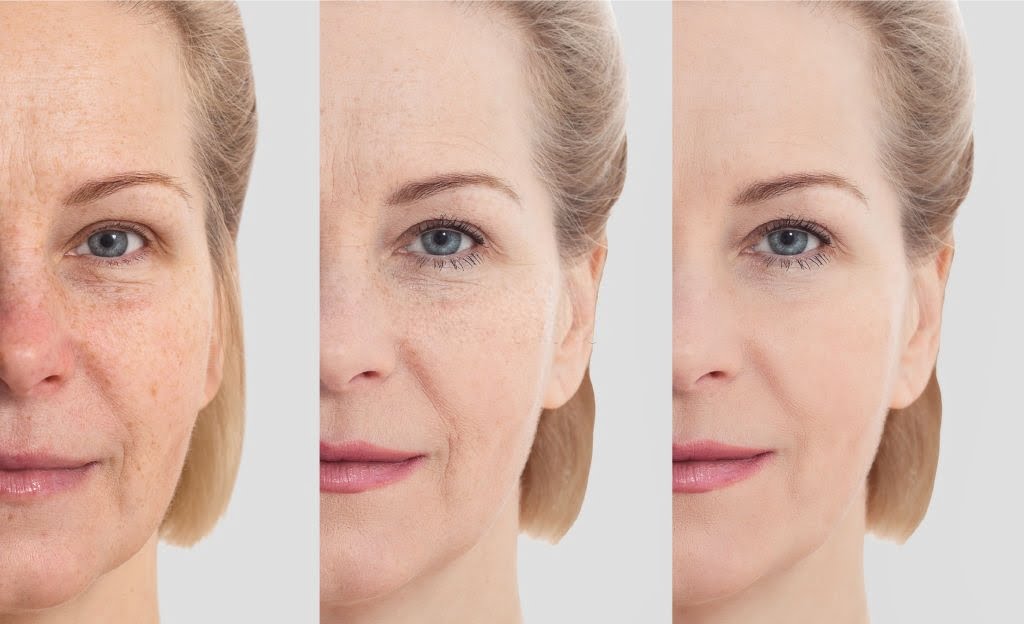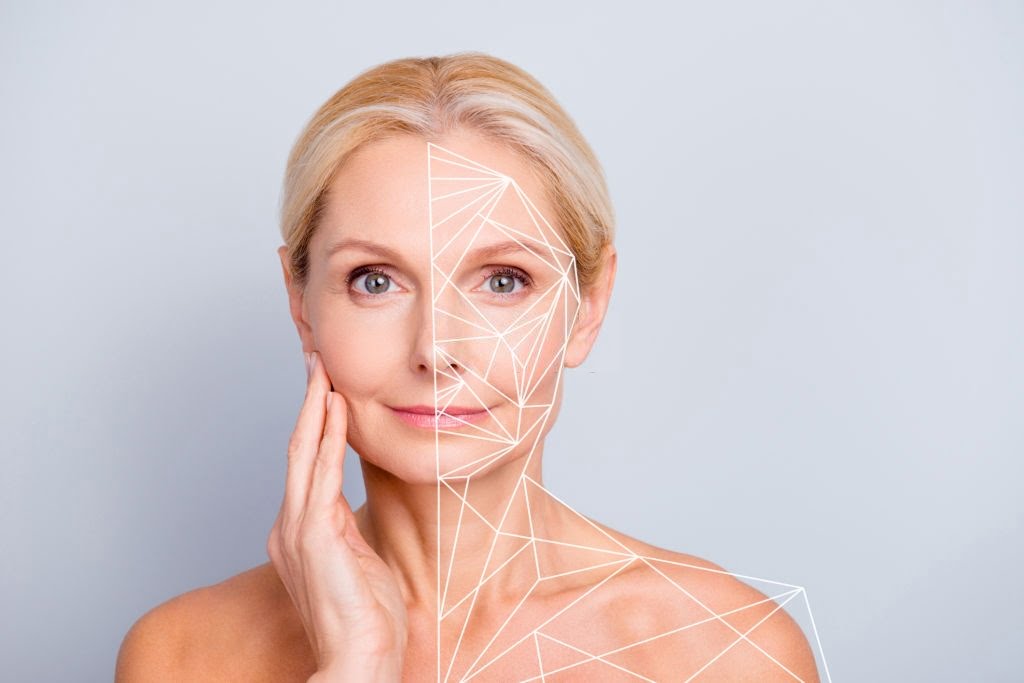Jojoba oil comes from a shrub native to Mexico and the United States. Jojoba oil for skin is a natural moisturizer that can be applied straight to the skin to treat acne, psoriasis, sunburn, and chapped skin. Additionally, it is used topically to promote hair regrowth in balding individuals.
Jojoba is utilized in the making of shampoo, lipstick, makeup, washing products, and face, hand, and body lotions.
How does it work?
When applied to the skin, jojoba acts as an emollient, soothing the skin and unclogging hair follicles. Researches are being done to explore jojoba oil’s benefits for skin and utilizing jojoba for balding because some believe that unclogged hair follicles produce new hair more frequently.
Numerous people incorporate jojoba oil into their skincare routine. And with good reason, there is a wealth of research demonstrating the efficiency of pure jojoba oil as a treatment for acne, dry skin, and a variety of other skin disorders.
Continue reading to learn more about the jojoba oil benefits for the skin.

Benefits of Jojoba Oil for Skin
If you have been wondering “What does jojoba oil do for skin” or “Is jojoba oil good for skin” look no further. Here are some of the reasons to convince you to purchase it.
It’s hydrating
Jojoba oil is moisturizing thus jojoba oil for dry skin is a popular solution. This means that jojoba oil for dry skin attracts water to the skin’s top layer, aiding in the skin’s hydration. This may assist in preventing the development of bacterial infections, acne, and dandruff.
It has antimicrobial properties
Antibacterial and antifungal activities are found in jojoba oil. While laboratory testing has revealed that it does not destroy all bacteria and fungi, it does kill some bacteria and fungi that can cause salmonella, E. coli infection, and candida.
It is a powerful antioxidant
Vitamin E is naturally occurring in jojoba oil. As an antioxidant, this vitamin benefits your skin. This suggests that it can aid in the battle against oxidative stress induced by daily exposure to pollution and other poisons.
Jojoba oil for oily skin
Although it is a botanical product, its composition is so similar to the natural oil (sebum) produced by your body that your skin cannot detect the difference.
This prevents it from accumulating on your skin and clogging your pores, resulting in fewer breakouts and milder acne and thus people with oily skin prefer jojoba oil for oily skin.
It is non-irritating to the skin
Jojoba oil is a wax at the molecule level. While it can be absorbed into the skin, its waxy composition enables it to form a calming seal on the surface.
In comparison to other botanical essential oils, jojoba oil is usually non-irritating. Allergy is extremely uncommon.
It aids in maintaining a healthy sebaceous gland
If you have been wondering “Is Jojoba oil good for aging skin” the answer is yes! Because it is so close to the sebum produced naturally by the body, it helps regulate sebum production.
Your skin gets soothed and nourished when you apply it. This communicates to your hair and sweat follicles that your skin does not require additional sebum to maintain its hydrated.
This helps avoid the appearance of greasy skin and acne produced by clogged pores.
It may contribute to the production of collagen
Its antioxidants may aid in the production of collagen by the body. Collagen is a protein found in the skin, joints, and cartilage-covered areas of the body.
As we age, our collagen levels diminish. This contributes to the fact that your facial shape changes with age. At least one study establishes a link between antioxidants and increased collagen synthesis when applied to the skin.

It may assist in accelerating the healing process of wounds.
It has shown promise as a wound healing stimulant. According to a preliminary study, jojoba oil promotes the reconnection of skin cells following a scratch or cut.
This could also explain why it is effective against acne and acne scars. These wound-healing properties may be a result of the high vitamin E content of jojoba oil.
Helps reduce skin problems
It may aid in the relief of eczema, psoriasis, and other skin disorders characterized by excessive dryness.
Jojoba oil is anti-inflammatory and regenerative in nature. Topical treatment may help alleviate symptoms such as dryness, flaking, itching, and itchiness.
Jojoba oil is very good for people who suffer from inflammatory skin disorders such as psoriasis and eczema.
It may be beneficial in the treatment of sunburns.
Jojoba oil is an ingredient in a number of natural sunscreen products. Vitamin E may help protect your skin from UV damage, according to one study, when paired with other antioxidants. Both ingredients are found in it.
Sun exposure can cause your skin to become dehydrated and flaky. It also replenishes vitamin E, moisturizes, and promotes healing, all of which help to alleviate these sunburn symptoms.
It may be beneficial in the treatment of acne.
According to one scientific experiment, jojoba oil may help prevent acne. It is anti-inflammatory, therapeutic, hydrating, and a natural antibacterial.
These qualities indicate that it may help you avoid outbreaks and promote minor acne recovery.
It may aid in the reduction of fine lines and wrinkles.
The appearance of fine lines and wrinkles is associated with oxidative stress. Although there is no direct evidence linking jojoba to the treatment of wrinkles and fine lines, other plant compounds with antioxidant capabilities have been demonstrated to increase skin suppleness.
This means that when jojoba oil is applied to the skin, its antioxidant properties may help delay the indications of aging.

It may contribute to the reduction of the appearance of scars.
Vitamin E has long been advised by health specialists to aid in the healing process of scars. The research into whether this works — and, if so, to what amount — continues.
If you’re interested in experimenting with vitamin E as a scar treatment, jojoba oil may aid in the healing process.
Together with its vitamin E concentration, jojoba oil’s inherent wound-healing capabilities may help decrease the appearance of scars.
Utilization
In comparison to some other essential oils, jojoba oil does not require diluting and can be used directly on the skin.
Before using jojoba oil, or any other cosmetic product for the first time, a patch test should be performed to ensure that you are not allergic.
The following steps outline how to conduct a patch test:
- Three to four drops of jojoba oil on the inside forearm.
- Bandage the area and let 24 hours.
- Examine the skin beneath the bandage. If no hives, redness, or irritation are present, you are safe.
The method of application of jojoba oil is determined by the intended outcome. It can be used as a lip balm to relieve dry, cracked lips or as an anti-aging serum all over the face before bed.
Additionally, as participants in one study did, you can combine it with other natural acne-fighting substances to create a DIY acne mask therapy.
Unlike the majority of other components, it is safe to use around the eye area, making it a popular oil-based makeup remover.
Risks and possible adverse consequences
Jojoba oil is deemed safe to utilize topically due to its hypoallergenic properties.
However, it has been shown to produce allergic reactions in a few rare instances. Hives and itching were common symptoms.
To avoid these negative effects, perform a patch test prior to using jojoba oil (as indicated above).
Popular jojoba oil items
To obtain the maximum benefit from it in your skincare routine, look for businesses that sell organic, cold-pressed jojoba oil.
Cold-pressed oils preserve a higher concentration of the plant’s antioxidants than hot-pressed oils. The additional antioxidants may aid in enhancing jojoba oil’s skin-care advantages.
FAQs
Can you put Jojoba oil on your face?
Jojoba oil possesses a number of beneficial characteristics that may make it an excellent treatment for acne, psoriasis, and eczema.

